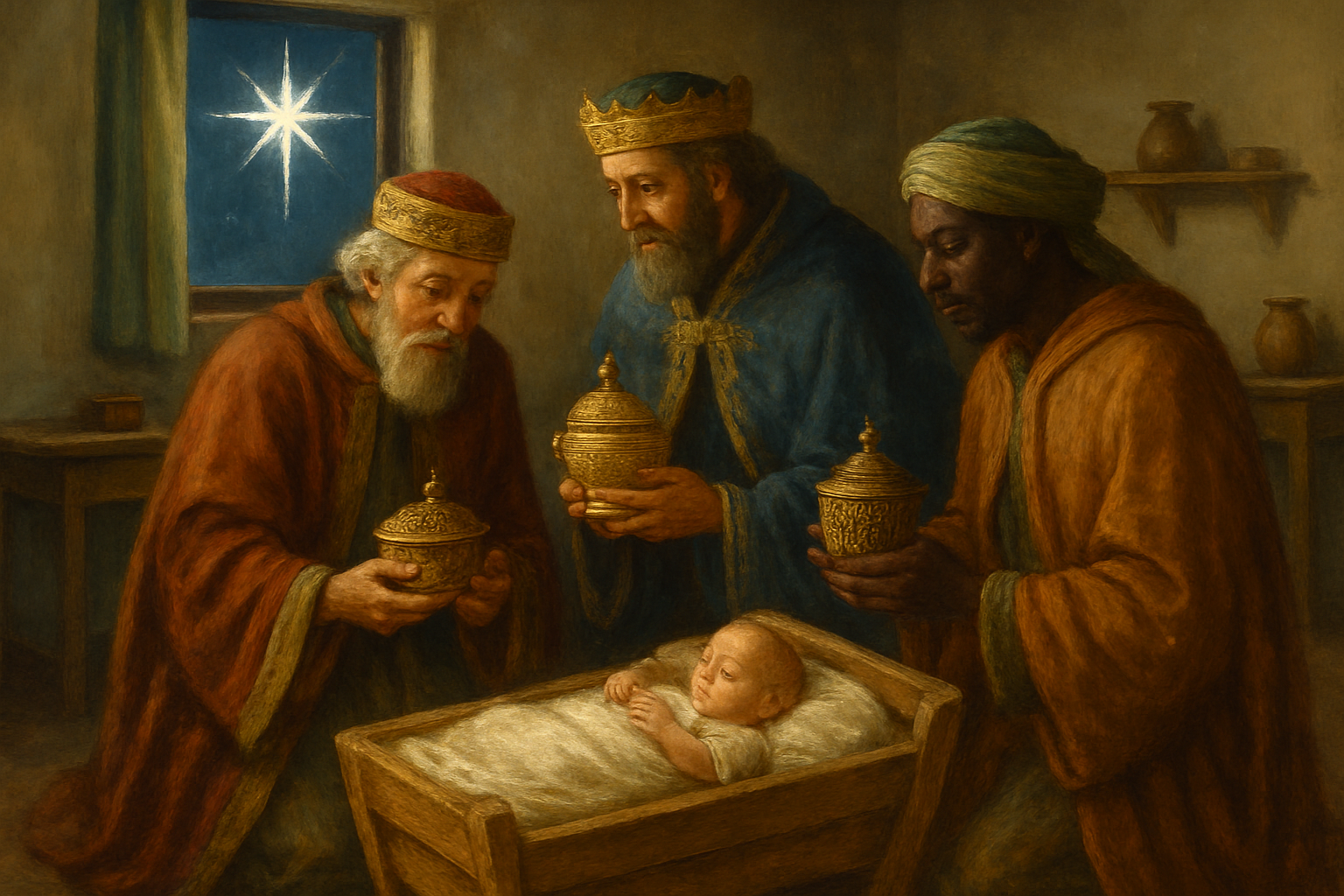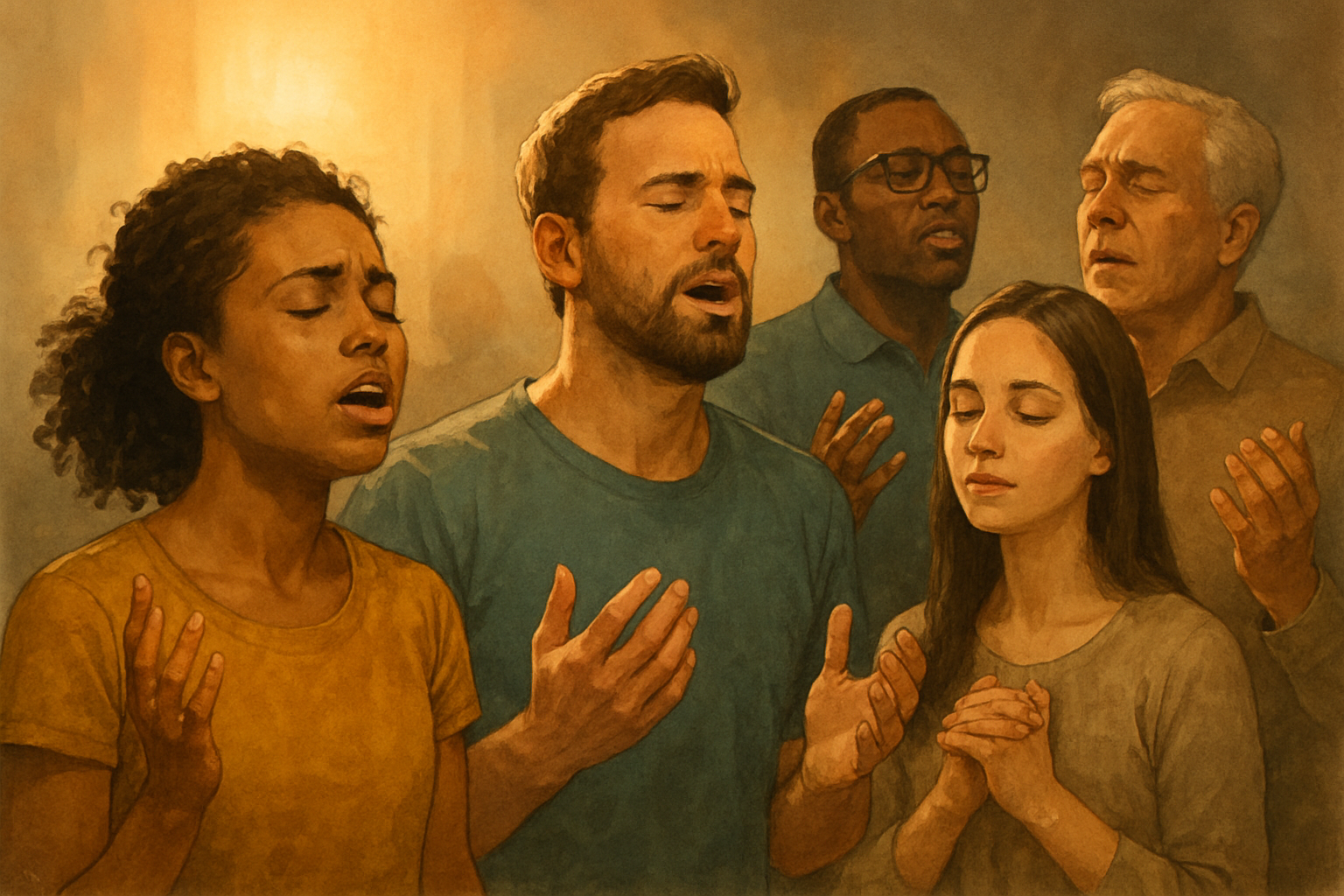Articles
"Train yourself spiritually"
- 1 Timothy 4:8
Embracing Prayer: Insights from the Mount of Transfiguration

The Significance of the Mount of Transfiguration The Mount of Transfiguration is a deeply meaningful moment in the Christian faith. On this mountain, Jesus revealed His divine glory to three of His disciples: Peter, James, and John. As the Gospels tell us, His face shone like the sun, and His clothes became dazzling white. This was far more than a striking scene; it was a powerful spiritual revelation. With Moses and Elijah appearing beside Him, representing the Law and the Prophets, we see how God’s redemptive plan comes together and finds its fulfillment in Jesus Christ.
Read MoreThe Call to Be Salt and Light in the World

Understanding the Sermon on the Mount The Sermon on the Mount is one of the most cherished and significant teachings of Jesus, found in Matthew chapters 5–7. In it, Jesus shares a collection of sayings and teachings that reveal the heart of the Kingdom of Heaven and the kind of life He desires for His followers. He speaks about the Beatitudes, the Lord’s Prayer, the Golden Rule, and much more. A central theme throughout is His invitation for believers to be “salt and light” in the world, people whose everyday lives reflect the beauty and glory of Christ to those around them. The Meaning of Being 'Salt of the Earth'
Read MoreFinding Jesus: Lessons from the Magi’s Journey of Faith

Responding to God’s Call The story of the Magi in Matthew 2 invites us to reflect on what it looks like to notice and respond to God’s unique call in our own lives. These wise travelers from distant lands didn’t receive a direct word from Scripture or a visit from an angelic choir. Instead, God met them through a sign in the heavens—a star. They were paying attention, noticed that something in their world had shifted, and chose to follow, stepping out in faith on a journey into the unknown.
Read MorePreparing for Advent: Embracing Peace Through Repentance

Discovering the Significance of Advent and the Virtue of Peace As we enter the second week of Advent, we’re invited to slow down and reflect on the beautiful virtue of peace. Advent is a season of expectant waiting and preparation for the celebration of the birth of Jesus Christ; a time to nurture the spiritual virtues that draw us closer to God. This week, we turn our hearts toward peace, a peace that is more than simple quiet and truly comforts and steadies the soul.
Read MoreReflect on Your Year with Christ the King

Looking Back on Your Year Taking time to reflect on the past year can be a powerful exercise, offering both spiritual and emotional insights along the way. As we reach the end of the church’s liturgical year, it’s a wonderful opportunity to pause and look back. Much like reflecting on the songs at a favorite concert, reviewing your year helps you remember the joyful highs, the difficult lows, and everything in between.
Read MoreUnderstanding the Nicene Creed: Worship and Witness

The Dual Role of the Nicene Creed: Worship and Witness The Nicene Creed serves a dual purpose in the life of the Christian church: it shapes both worship and witness. As highlighted in the final sermon of the 'We Believe' series, the creed answers the fundamental question posed by Jesus: "Who do you say that I am?" This question is asked not only by Jesus to his followers but also by the world to the church. Our response to Jesus forms the heart of our worship, while our answer to the world becomes our living testimony. In this way, the Nicene Creed helps us both experience God deeply and clearly express our beliefs, grounding us in truth and guiding us as we live out our faith.
Read MoreThe Constant of Christ: A Deep Reflection on Faith, Baptism, and Community

Baptism: A Lifelong Experiment in Faith Baptism is described as a “wonderful experiment”—not in a scientific way, but as a special opportunity for our community to come together, witness, and support one another’s journey of faith. It invites us to ask, what truly shapes a life of faith? Is it our own experiences and challenges, or is there something even greater at work?
Read MoreStart With Why - The Heart of the Nicene Creed

The Historical Why: Arius, Alexander, and the Council of Nicaea To understand the “why” behind the Nicene Creed, we begin with the story of Arius, a priest in Alexandria around 318 AD. Arius was a gifted teacher—tall, thin, severe in appearance, and popular among both clergy and laypeople. His teachings, designed to make worship and witness simpler, claimed that Jesus was not eternal, not of the same substance as God the Father, and was forever subordinate to Him.
Read MoreUnderstanding the Nicene Creed: Foundations of Christian Belief

The Dual Aspects of Worship and Witness in Christianity In a recent sermon, we were invited to explore the profound insights embedded within the Nicene Creed. This timeless statement of faith serves as both a summary of scripture's teachings and an expression of the church's commitment to answering a fundamental question: "Who do you say that Jesus Christ is?" This question, posed by Jesus to His disciples, is central to our understanding of worship and witness within the Christian faith.
Read MoreHow Beliefs Are Formed and Influence Our Lives

The Foundation of Beliefs: Reason, Experience, and Community Beliefs are the bedrock upon which we build our understanding of the world and navigate everyday life. The way our beliefs develop is shaped by many factors—including our own reasoning, what we experience with our senses, and the influence of those around us. Reason invites us to think carefully and reflect on the information we receive. It helps us weigh facts and consider evidence, leading us to conclusions that make sense on a deeper level. In addition, our everyday experiences, what we see, hear, and feel, leave strong impressions that can shape what we believe for years. For instance, a childhood encounter with an electric fence doesn’t just teach a quick lesson; it leaves a memorable impression about the importance of caution around certain things.
Read MoreRecent posts


